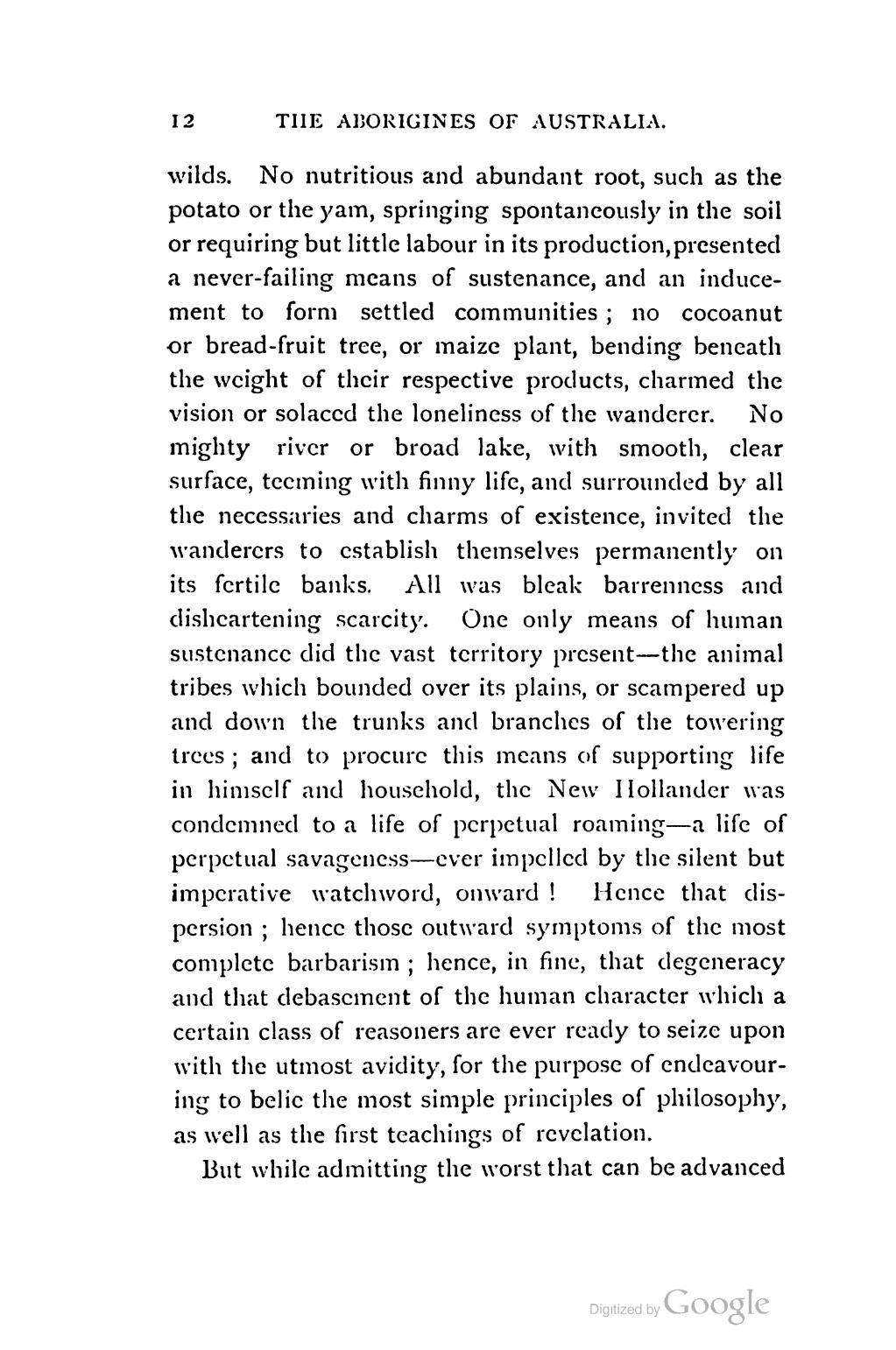wilds. No nutritious and abundant root, such as the potato or the yam, springing spontaneously in the soil or requiring but little labour in its production, presented a never-failing means of sustenance, and an inducement to form settled communities; no cocoanut or bread-fruit tree, or maize plant, bending beneath the weight of their respective products, charmed the vision or solaced the loneliness of the wanderer. No mighty river or broad lake, with smooth, clear surface, teeming with finny life, and surrounded by all the necessaries and charms of existence, invited the wanderers to establish themselves permanently on its fertile banks. All was bleak barrenness and disheartening scarcity. One only means of human sustenance did the vast territory present—the animal tribes which bounded over its plains, or scampered up and down the trunks and branches of the towering trees; and to procure this mcans of supporting life in himself and household, the New Hollander was condemned to a life of perpetual roaming—a life of perpetual savageness—ever impelled by the silent but imperative watchword, onward! Hence that dispersion; hence those outward symptoms of the most complete barbarism; hence, in fine, that degeneracy and that debasement of the human character which a certain class of reasoners are ever ready to seize upon with the utmost avidity, for the purpose of endeavouring to belie the nost simple principles of philosophy, as well as the first teachings of revelation.
But while admitting the worst that can be advanced
